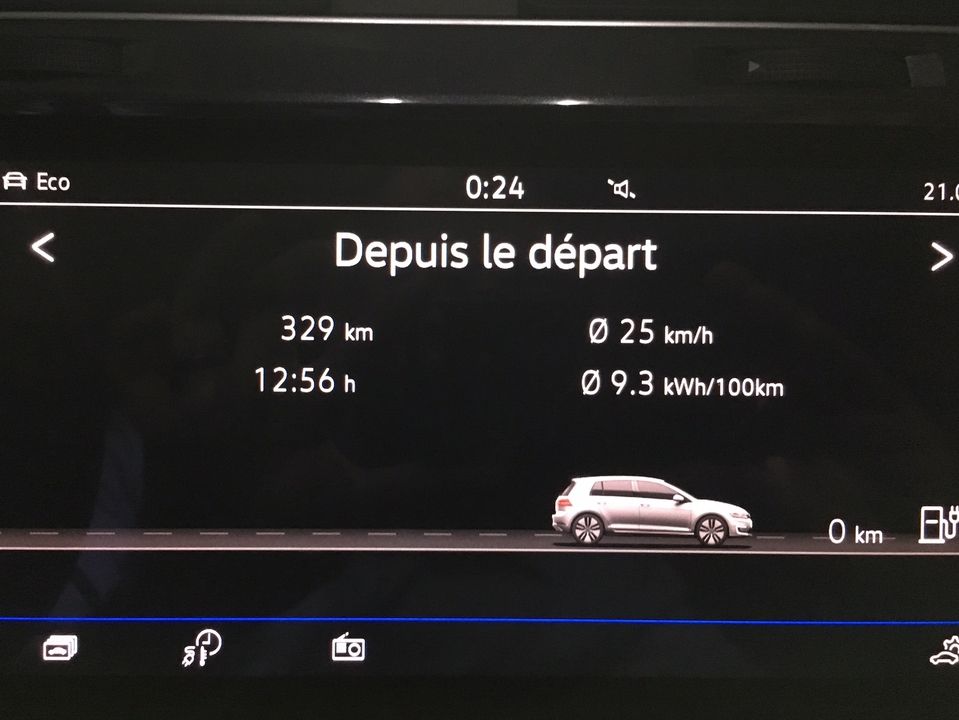http://www.caradisiac.com/video-la-...-peut-on-faire-en-une-seule-charge-160729.htm
The article is in french but here's the important stuff:
1 - The European drive cycle says eGolf goes 300km (186mi). Their driving is a lot more stop and go.
2 - They drove the eGolf around Paris, France for half a day (13 hours) in stop and go traffic. Paris is notorious for its traffic.
3 - They used eco+, B mode braking and averaged 25 km/h (15 mph)
4 - They went all the way to an indicated range of 0km (0mi) on the dashboard and still got an extra 3km (1.86mi) until they had to push it to their office parking lot.
5 - The result was 329km (204mi)
So while it's not likely we'd ever drive that way and get that kind of range, it's good to know that if you really need to push it, it can go much further than the rated 201km (125mi).

The article is in french but here's the important stuff:
1 - The European drive cycle says eGolf goes 300km (186mi). Their driving is a lot more stop and go.
2 - They drove the eGolf around Paris, France for half a day (13 hours) in stop and go traffic. Paris is notorious for its traffic.
3 - They used eco+, B mode braking and averaged 25 km/h (15 mph)
4 - They went all the way to an indicated range of 0km (0mi) on the dashboard and still got an extra 3km (1.86mi) until they had to push it to their office parking lot.
5 - The result was 329km (204mi)
So while it's not likely we'd ever drive that way and get that kind of range, it's good to know that if you really need to push it, it can go much further than the rated 201km (125mi).




